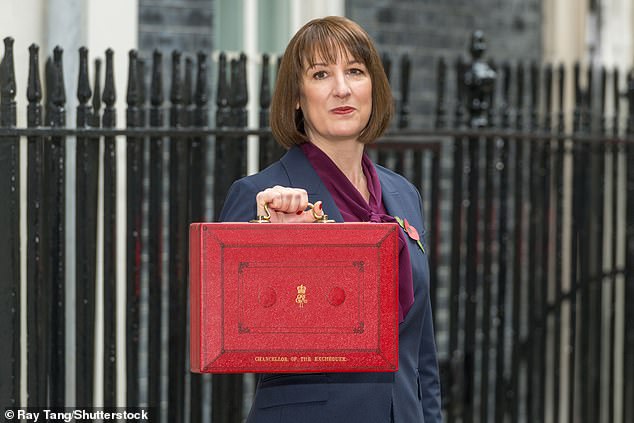Table of Contents
Rachel Reeves has been accused of failing to stop panicked savers from making damaging retirement decisions in the run-up to the budget.
In a harsh rebuke to the Chancellor, the Institute for Fiscal Studies said she allowed speculation to arise about a possible raid on pension funds while finalizing her tax and spending plans.
Rumors that it planned to reduce the amount savers can withdraw tax-free proved particularly damaging, with many rushing to withdraw cash before the changes took effect.
As it turned out, she didn’t reduce the tax-free lump sum, meaning anyone who took action did so unnecessarily.
Sloppy: The Institute for Fiscal Studies said the Chancellor allowed speculation to arise about a possible raid on pension funds as she finalized her tax and spending plans.
Pensions experts believe many savers who cashed out of their pensions early for fear of a tax raid will have made irreversible decisions that will leave them worse off in retirement.
Many will fall into a little-known tax trap called the “annual money purchase allowance”, which will dramatically reduce their ability to save for a pension if they receive a penny more than their tax-free lump sum.
IFS director Paul Johnson said: “Reeves may want to reflect on the damage caused by allowing various rumors to circulate for so long.”
“If there was never any intention to change the income tax treatment of pensions, then – my goodness – she should have said so, rather than allowing so many to collect lump sums early.”
Former Pensions Minister Steve Webb, now a partner at pensions consultancy LCP, urged the Chancellor to “set out a long-term plan for pensions and then stick to it” to avoid a repeat before future Budgets. He said: “At least then there should be less annual speculation.”
Before the budget, Reeves was rumored to be planning a tax raid on pensions as he struggled to make the numbers add up.
Among the options thought to be on the table was a cut to the tax-free lump sum that allows savers to withdraw 25 per cent of pension funds – up to a maximum of £268,275 – when they reach age 55. . Cutting that limit to £100,000 would raise £2 billion a year.
Reeves decided against such a measure and instead introduced a new inheritance tax by dragging pension funds into inheritance tax for the first time.
It is now under pressure to rule out further changes, giving savers the certainty they need to plan for their retirement.
Dan Olley, director at Hargreaves Lansdown, said: “Investing for old age is a long-term endeavour, so policy stability is key if we want more people to benefit from the power of compounding to achieve a comfortable retirement.” .
Noel Butwell, chief executive of Abrdn Adviser, urged the Chancellor to “establish a platform for long-term stability”, saying: “That is what is desperately needed if we are to give people the confidence to save and invest for the long term.” “.
AJ Bell’s Tom Selby warned that the Treasury’s failure to commit to the so-called pension tax freeze, ruling out future attacks on superannuation funds, means “there is every chance that instability will rear its head again.” its ugly face next year.”
He said: ‘We have seen how destabilizing this speculation can be. When it comes to tax-free cash in particular, any decision to take your money may be irreversible and could result in long-term losses.
‘Given the commitment that people make when they contribute to a pension, the least they should expect in return is that the rules of the game do not change once they have made that decision.
“A pension tax lock would generate greater confidence in pensions, giving people more confidence to save for retirement.”
DIY INVESTMENT PLATFORMS

AJ Bell

AJ Bell
Easy investing and ready-to-use portfolios

Hargreaves Lansdown

Hargreaves Lansdown
Free Fund Trading and Investment Ideas

interactive inverter

interactive inverter
Fixed fee investing from £4.99 per month

sax

sax
Get £200 back in trading fees

Trade 212

Trade 212
Free trading and no account commission
Affiliate links: If you purchase a This is Money product you may earn a commission. These offers are chosen by our editorial team as we think they are worth highlighting. This does not affect our editorial independence.

